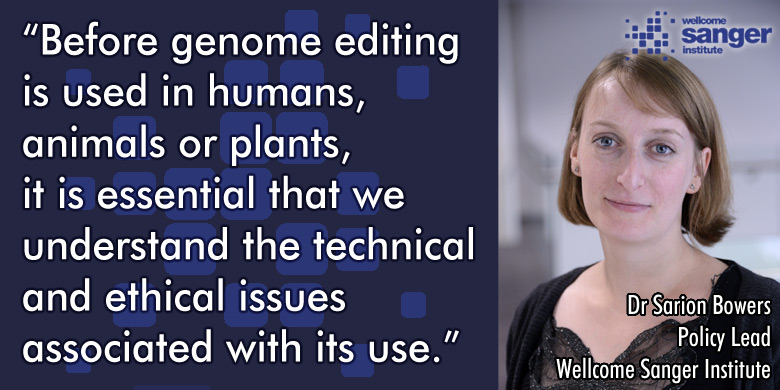Genome Editing in Humans
Wellcome Sanger Institute’s statement on Genome Editing in Humans, in response to The Nuffield Council on Bioethics report on the ethical issues raised by its use.
 Genome editing is an exciting technology with the potential to improve human health and the environment. The ability to make precise changes to the genes of humans, animals, and plants offers new ways to tackle global challenges in health, farming, and conservation. Although genome editing has enormous potential, important ethical issues arise from its use.
Genome editing is an exciting technology with the potential to improve human health and the environment. The ability to make precise changes to the genes of humans, animals, and plants offers new ways to tackle global challenges in health, farming, and conservation. Although genome editing has enormous potential, important ethical issues arise from its use.
In the UK it is illegal to use genome editing on human cells and embryos that are intended for fertility treatments to result in pregnancy. Genome editing can be used in humans where the genetic change cannot be inherited, or in embryos that are used in research with no intention of implantation.
Before genome editing is used in humans, animals or plants, it is essential that we understand the technical and ethical issues associated with its use. This requires continued research into the science and the societal implications, and there must be an engaged dialogue on the uses of genome editing.
The Nuffield Council on Bioethics report explores the ethical issues raised by genome editing in humans and takes the view that in certain circumstances it might be ethically acceptable to edit the human genome in a way that will be inherited. It is the Sanger Institute’s view that before this can happen more research into the technical issues associated with genome editing is required. Furthermore, no change to UK law should be contemplated before the public is confident that genome editing is safe and ethical, after an open debate.